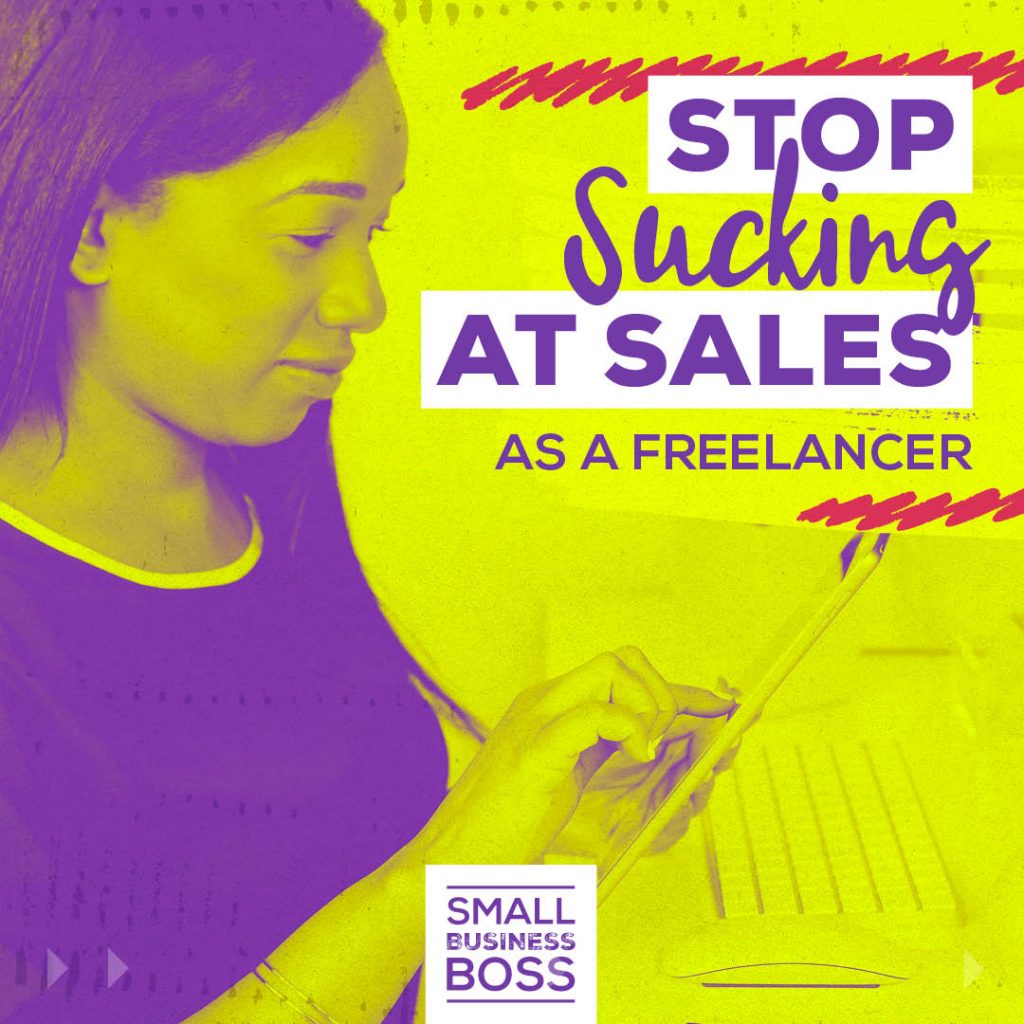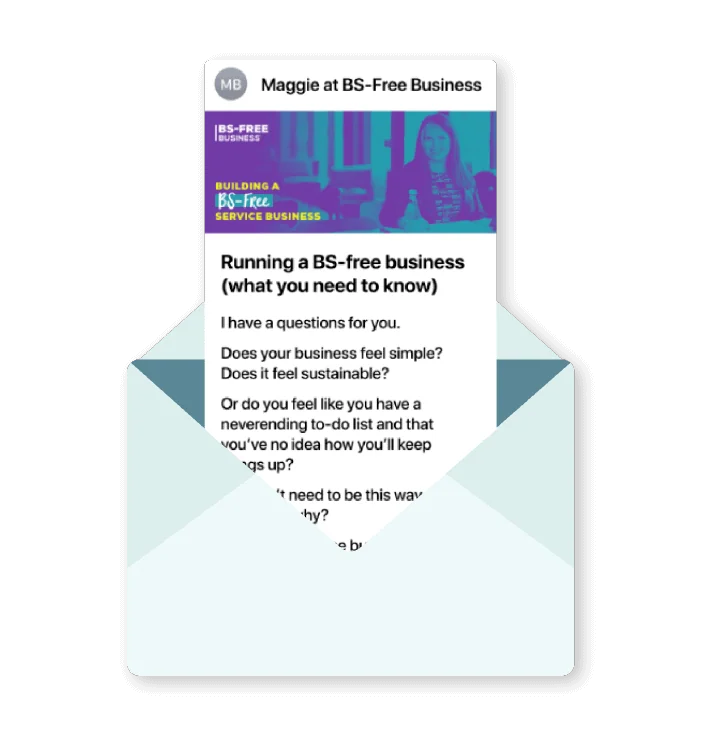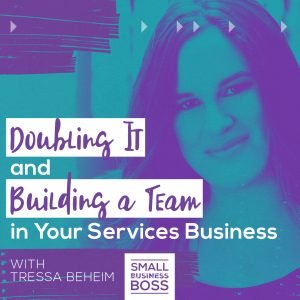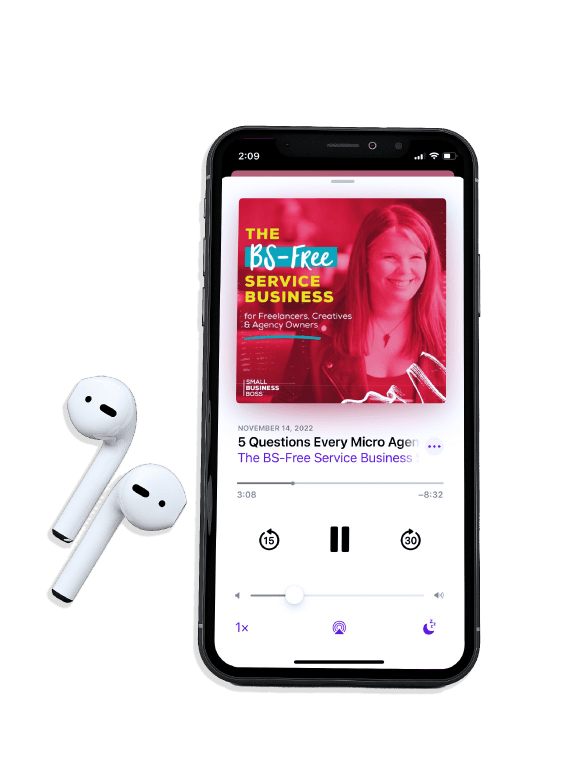
Search the site:
Episode 185: Stop Sucking at Sales as a Freelancer
If there’s one thing that makes all the difference in your business as a freelancer, it’s having sales skills. Yet most of us don’t have sales experience when we start a business, or worst yet, we have all kinds of stories about how we suck at sales. In this episode, we’re getting specific about how to stop “sucking” at sales so you can close more clients this fall.
No matter how you feel about sales, it’s one of those skills that’s critical to your success as a freelancer. To land clients, you need to be able to sell your services. And let’s face it, it’s something that most people struggle with because we don’t go to school for sales. We train to be a writer or designer or tech whiz — not necessarily a sales expert.
Chalk it up to one more thing you need to lock down as a freelancer that you may not have thought all that much about before you started.
Or maybe you’ve gotten pretty good at sales, but you want a way to up your game, to feel like you’re not missing something and that you’re landing as many potential clients as possible.
Either way, this episode is for you.
Before we dive in, I want to share a quick reframe for you if you feel like sales are icky. Stop worrying about selling, and start thinking about listening and how you can help potential clients. They have a problem, and they’re coming to you to help solve it. That’s it.
So, let’s dive into the core element of the sales process as a freelancer.
The core part is what can be systematized and streamlined around sales — which I call the 3Ps — and they are packaging, pricing, and proposals. Without these things locked down, you’re making everything MUCH harder than it needs to be. Let’s quickly dive into each one.
Packaging Your Services
Packages are magical for your business because it forces you to define your services and determine exactly what it is you offer to clients. I know I talk a lot about packages, but it’s because they are so impactful on your business to stop you from selling everything and know what you have to offer clients.
Those of you that will do anything and everything, and then throw in the kitchen sink, it’s time for you to constrain what you offer and build a baseline package.
Because when you know what you’re selling, it’s easier for people to know you’re the right fit to help them with it, and you’re able to articulate WHY they should choose you that much easier.
Plus, packages are a huge timesaver as you don’t have to constantly reinvent the wheel for every potential client.
Pricing Your Services
Your price tells a story. If you’re too low, that doesn’t always inspire confidence. And if you’re too expensive without any context, it can be a deal-breaker.
And then there’s the mindset that goes into pricing ourselves that can seriously mess with everything.
An essential part of the sales process is doing the math before you’re writing a proposal or talking to a client, so you know what you charge. Having baseline prices for packages or a target hourly rate saves you from lowering your prices on the fly because you’re having a bad day or charging in a way that’s simply not profitable.
If you’re not sure where to start with pricing, sit down, and look at everything that goes into delivering a specific service. More often than not, we underestimate how much time and effort each service takes, and we sell ourselves short.
Selling Your Services with a Proposal
Bosses, call me obsessed, but I think proposals are magical. I know a lot of people see them as a tedious waste of time, but proposals are an incredible sales tool when done well.
Even if you have packages, sometimes your clients need more information to base their decision on. Having a proposal helps you persuade them that you’re the right choice and helps get them to the yes. Plus, a proposal will set you apart and make it feel less like a transaction to do business with you.
Finally, a proposal says you’re a professional, and that creates confidence that you know what you’re doing.
If you want to learn more about proposals, check out our new microsite at FreelancerProposals.com for everything you need to know about proposals.
Next up is the hands-on, more active part of the sales process — the consult call process — and then how you ultimately close the sale.
Consult Calls
Excuse me for a moment while I jump up on my soapbox. Can we talk about the big problem I see with consult calls? People are seriously confused about what the purpose of these calls is and end up giving away too much for free.
A consult call is about discussing how you can specifically work together. It’s not about theoreticals or getting some free strategy. If a prospect wants that, they’re unlikely to actually turn into a paying client.
With this out of the way, your consult calls are a big part of your sales process so know their purpose and have a plan going in. Don’t just wing them and see what happens. Show up, take control, and be prepared.
Closing the Sale
You sent the proposal — now what? It can be a huge challenge to know when to follow up and how to follow-up in a way that’s helpful and not annoying. That’s why I always recommend you lay out a system, so you have established dates for follow-up and know what to say; otherwise, you may simply ignore it.
Remember, with closing it’s a yes until you get the actual no. If you got to the point where you sent a proposal, it’s not unreasonable to want to close the loop and hear that no before you move on.
Links for the Show

I’m Maggie Patterson (she/her), and services businesses are my business.
I have 20+ years of experience with client services, am a consultant for agency owners, creatives, and consultants, and vocal advocate for humane business practices rooted in empathy, respect, and trust.
Read or Listen to the Latest
Help Not Hype

Tired of the same old BS business advice?
I got you with weekly emails packed full of proven strategy that makes a real difference in your service business.









